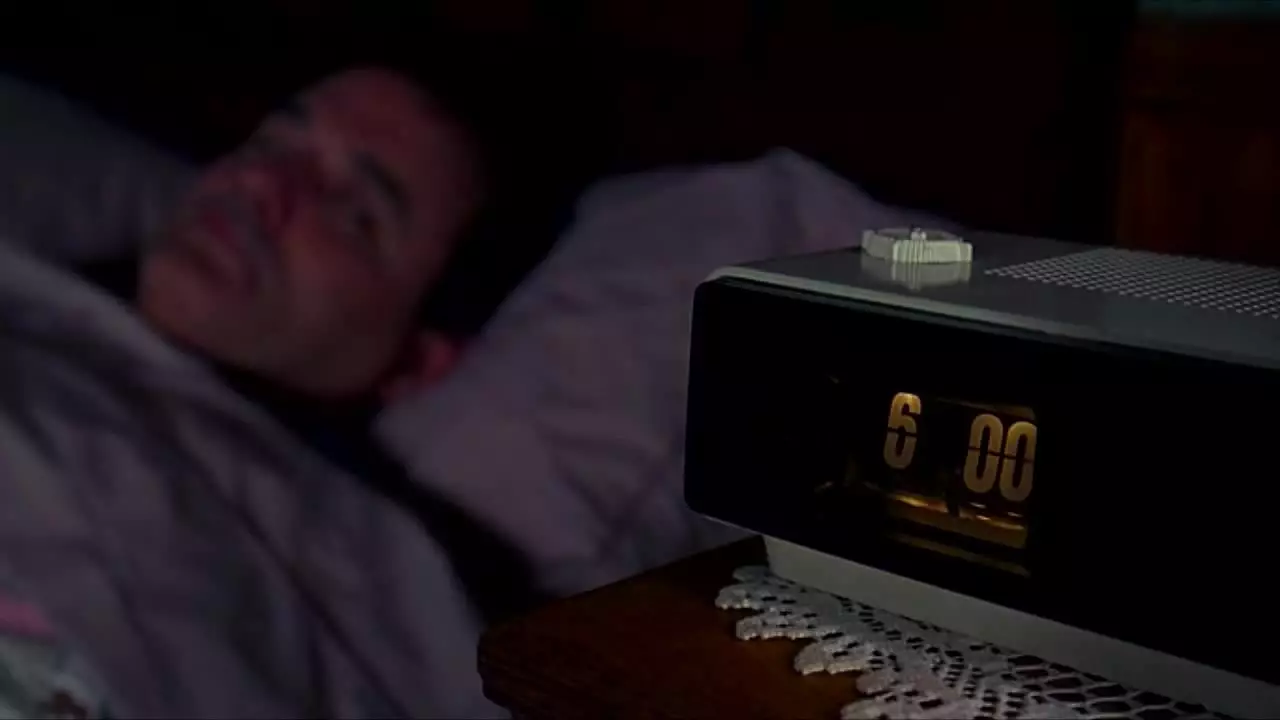
Loads of famous peeps throughout history didn't get a lot of sleep but still lived successful lives, on the surface at least. Nikola Tesla, one of the most important figures in the invention of modern electricity technology, averaged between 1.5-2 hours a night. Fellow leccy Thomas Edison slept six times a day, but at 30-minute intervals, which may have been a bit healthier. Yahoo CEO Marissa Mayer reportedly only gets four to six hours a night, while both former president Barack Obama and his follow-up White House incumbent, Donny T, both claim to get only between four and six hours each.
However, scientists believe they've recently found the secret to a decent kip, not to mention the importance of getting it, though the solution is less medical (in the traditional sense) and focuses more on practices associated with mental health. According to the scientists, the key to a decent time in the land of nod is having a good reason to get up in the morning.

Credit: Groundhog Day
Advert
The study discovered that those who feel they've a reason to ignore that morning glory and jump out of bed with vim and vigour first thing are less likely to experience sleep-ruining symptoms such as insomnia over long periods of time.
The researchers focused on older adults who tend to sleep less than younglings, but they argue that their findings are likely to apply to the public at large.
Lead scientist Dr Jason Ong, who is from America's Northwestern University, said in The Metro: "Helping people cultivate a purpose in life could be an effective drug-free strategy to improve sleep quality, particularly for a population that is facing more insomnia. Purpose in life is something that can be cultivated and enhanced through mindfulness therapies."
Mindfulness therapies have grown in popularity in recent years, with the usual explosion of books and other media extolling its virtues, some of which are likely to be crock. However, its roots in ancient meditation philosophies and use in modern-day cognitive behavioural therapies has seen it largely accepted as a potentially positive way of improving a person's overall physical and mental health. The study at Northwestern focused on 823 peeps with an average age of 79, who answered a number of questions on both the purpose of life and sleep.
Regarding the purpose in life survey, they were asked to rate their response to statements such as: "I feel good when I think of what I've done in the past and what I hope to do in the future."
Those who believed there was meaning in their lives were 63 percent less likely to experience sleep apnoea, a breathing issue that causes people to wake up on the regs throughout the night and feel unrefreshed in the morning. They were also 52 percent less likely to have restless leg syndrome, an irresistible urge to move the legs which disturbs sleep, and their overall sleep quality was moderately higher. None of those who took part in the study suffered from dementia, while half were African-American and 77 percent were women.
The scientists said more research needed to be done to investigate whether improving the perception of purpose in life through mindfulness might lead to better sleep.
So, all in all, if you don't sleep much at all, you might become president of America, but you'll likely be kicking the air in your sleep and pissing off anyone (and everyone?) around you. Swings and roundabouts.
Words: Ronan O'Shea
Featured Image Credit: The Simpsons / FOX